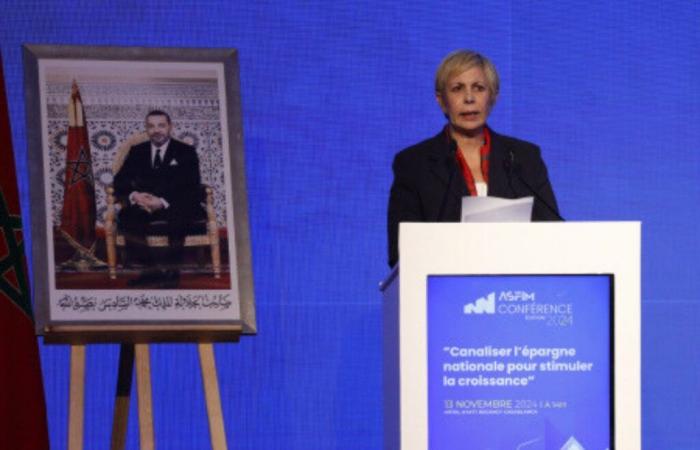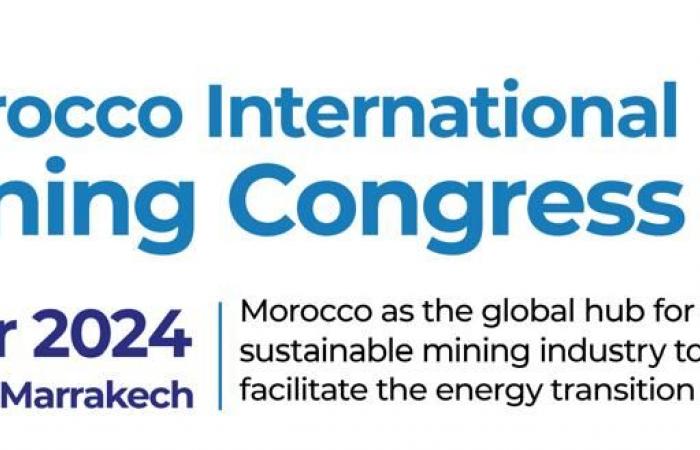
The role of Undertakings for Collective Investment in Transferable Securities (UCITS) in mobilizing savings is set to strengthen with the upcoming adoption of a new legislative and regulatory framework governing them and their management companies, affirmed , Wednesday in Casablanca, the president of the Moroccan Capital Market Authority, Nezha Hayat.
This new framework, developed to meet the needs and constraints of both investors and professionals, was thought and designed with the aim of raising the UCITS management industry in Morocco to the best international standards and increasing its attractiveness and development, explained Ms. Hayat during a conference held at the initiative of the Association of Moroccan management companies and investment funds (ASFIM) under the theme “Channeling national savings to stimulate growth”.
According to her, the new law relating to UCITS will make it possible to strengthen the security of investment in UCITS, as well as the protection and confidence of savers, in particular, by subjecting UCITS management companies to the approval of the AMMC and by introducing mechanisms for managing the liquidity risk to which these organizations are exposed.
It is also about expanding the range of products offered to Moroccan investors by introducing ETFs (Exchange Traded Funds), foreign currency UCITS intended in particular for Moroccans residing abroad, participatory UCITS and UCITS with simplified operating rules reserved for informed investors and benefiting from improved prudential ratios, argued Ms. Hayat.
The said law will also further encourage managers to innovate by expanding the investment universe of UCITS to derivative products whose market was launched on Tuesday, to OPCI securities and to new foreign financial instruments as well as to new markets, particularly in Africa, in addition to making UCITS a multi-support investment vehicle allowing investors, particularly institutional ones, to also place their alternative investments in OPCCs (Collective Investment Organizations in Capital) and in OPCI (Real Estate Collective Investment Organization), she added.
“Far from constituting a simple amendment, the new law is intended to be the starting point of a new cycle of growth and development of the UCITS management industry in Morocco,” argued the president of the AMMC .
Given the new opportunities it offers, this new law implies greater responsibilities for asset management professionals, he indicated, specifying that new rules will have to be respected and management companies will be called to strengthen their resources as well as their capacity to evaluate and ensure adequate monitoring of the risks borne by UCITS.
Read also|Morocco: national savings at 32.1% of GDP in Q2-2024
In addition, Ms. Hayat estimated that the success of this new law is dependent on substantial improvements in two important areas, namely, the distribution of UCITS and the financial education of investors.
And to conclude: “I wish to reaffirm my conviction that the imminent regulatory developments will strengthen the role of UCITS as major contributors to the financing of our economy and I have no doubt that Morocco, with the continued development of its capital market, is well placed to become a model for mobilizing savings in Africa”.
For his part, the president of ASFIM, Réda Hilali, underlined the adaptability of UCITS which, with strong liquidity of the funds managed, has enabled a cumulative volume of transactions of nearly 2 billion dirhams (billion dirhams) in 2024 , between subscriptions and redemptions. He specified that a quarter of these operations concern assets with a long-term horizon, with a turnover rate greater than 100%.
This savings dynamic has directly fueled the Moroccan economy over the last ten months, through an increase of 60 billion dirhams in direct financing from the Treasury, noted Mr. Hilali.
Regarding public finances, the president of ASFIM noted that UCITS hold more than MAD 310 billion in securities issued or guaranteed by the State, thus playing a crucial role in supporting public finances. The private sector also benefits from these investments, with an increase of MAD 36 billion in private debt, bringing investments to a total of MAD 180 billion, he added.
Regarding the stock market, Mr. Hilali considered that UCITS remain leading players, participating in more than a third of the exchanges on the Casablanca Stock Exchange and contributing to 50% of fundraising.
This conference was structured around three panels addressing the themes of domestic savings and its impact on the national economy, with comparative feedback based on international benchmarks, innovation, as well as major global trends. of asset management and the growth prospects for the sector in Morocco.
IDM with MAP










